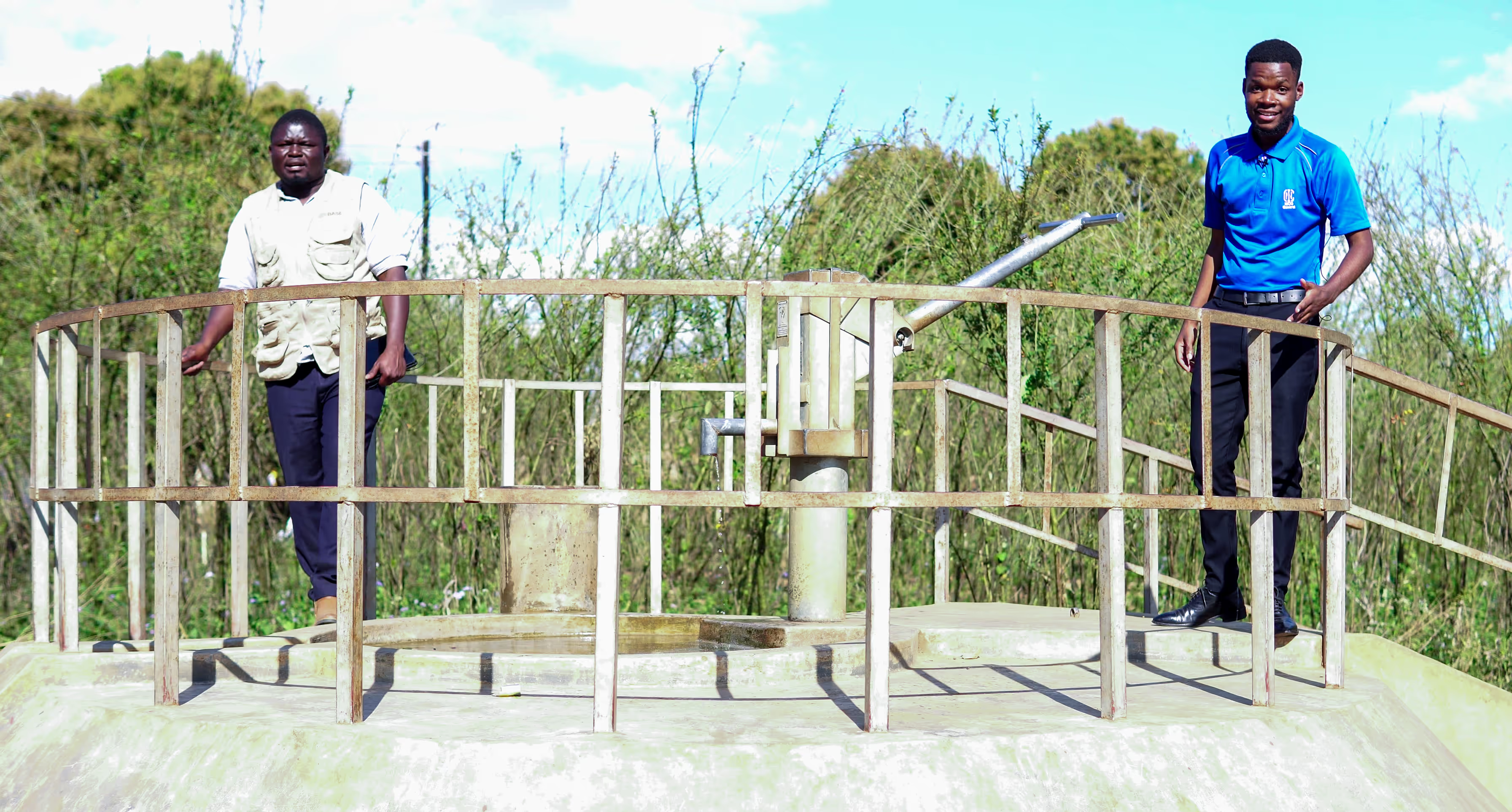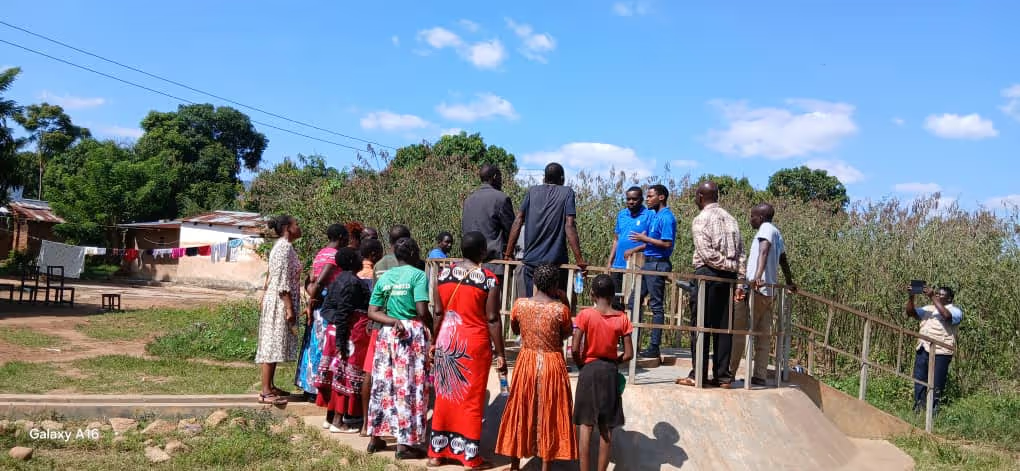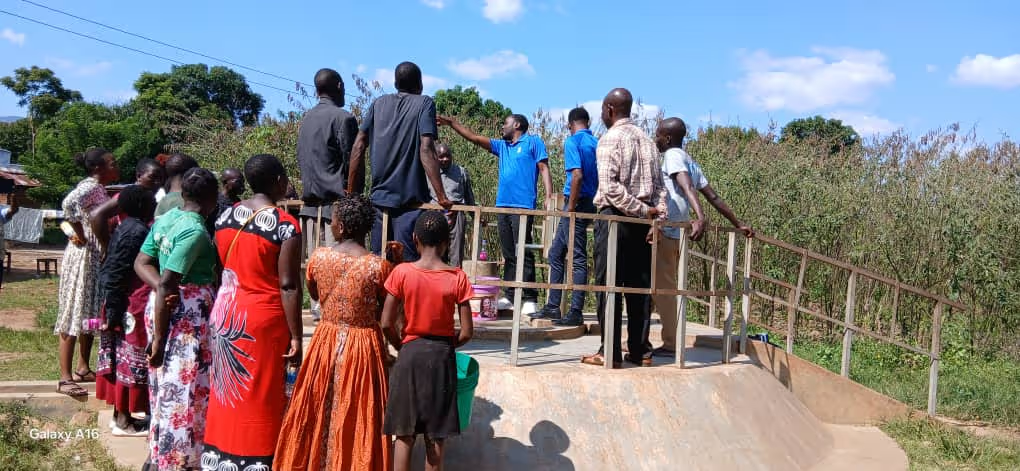In Malawi, rural boreholes are lifelines, providing water supply for 80% of Malawi's rural population. They keep communities hydrated, healthy, and resilient. Yet, while millions of kwacha are invested in drilling and construction each year, very few boreholes remain protected beyond their installation against natural disasters. Insurance, if it exists at all, usually covers only the drilling phase. Once the ribbons are cut and pumps installed, the idea of insuring a rural water point rarely enters the conversation.
The result: When disasters like cyclones or floods strike — as they increasingly do in Malawi — the loss of a borehole often means the slow, uncertain process of seeking donor funds for repairs or replacements. It’s a gap in resilience that has quietly persisted for decades.
For BASEflow, this gap became glaringly obvious after completing a series of flood-proofing upgrades on boreholes in TA Njema, Mulanje. The elevated structures could withstand far more than before — but a question still lingered: what if another flood destroyed what we had just upgraded? We realized that structural improvements alone could not fully shield communities from future losses.
Insurance had to be part of the equation. But how?
We approached several insurance companies with the idea. Nearly all turned us down. The reasons were consistent: the product was unprecedented, and the boreholes in question sat squarely in high-risk flood zones. In the conventional insurance mindset, this was a business risk to be avoided at all costs.
All except one. Nico General Insurance.
NICO General Insurance listened, assessed, and decided to take the leap. When we spoke to Khumbo Banda, Business Development Officer at NICO General, he was candid about the risks. “Most insurers are very reluctant to do borehole insurance because cyclones have been hitting this country almost every year, maybe just missing a year apart, which destroy infrastructure like boreholes. Accepting such a product is a business risk,” he explained.
And yet, two key motivators tipped the balance for NICO General to take the plunge. First, a strong sense of corporate social investment. “We saw what this initiative was doing,” Khumbo said. “You are helping the community, and us as NICO, we want to give back to the community in any way we can.” Second, the reduced business risk thanks to BASEflow’s flood-proofing measures. Before committing, NICO General inspected the boreholes themselves. “Your structures, the way you elevated the boreholes, made it easier for us. It gave us confidence to say, okay, this is a risk we can take,” Khumbo noted.
Khumbo also pointed out that this is “the first of its kind.” While NICO General has insured boreholes during the drilling phase before, no one had approached them to insure rural water points already in operation. Large institutions like Water Boards may insure treatment plants, he explained, but village-based water points have been left out entirely — until now.
Another important feature of this partnership is its investment-backed structure. Alongside the insurance policy with NICO General, BASEflow established an endowment fund with NICO Asset Managers, another subsidiary of NICO Holdings Limited. The fund currently generates around 26% annual interest income, which directly covers the cost of annual premiums. This means the insurance is not only technically viable but also financially sustainable, without the need for constant external fundraising.
For NICO General, this was also about shifting from reaction to preparation. Traditionally, rural water point rehabilitation has relied on emergency appeals after disaster strikes. NICO saw in this pilot an opportunity to reverse that approach. “It’s best to be proactive than to be reactive,” Khumbo emphasized. “Instead of waiting until damage happens and going out to look for donor funds, NICO General thought it would be better to help you proactively to have this fund set aside.”
Khumbo and his team from NICO General were not content to simply issue policies from behind a desk. Together with BASEflow, they travelled to ten flood-proofed hand pump communities in TA Njema to conduct community sensitization and training sessions designed to establish a direct business connection between the communities and the insurance company, and to formally sign the insurance contracts. This meant that water point committees would not just be passive beneficiaries but actual contracting parties, with a clear understanding of their rights, responsibilities, and the practical process for making a claim — including what they could claim for and when.
For many of the committee members, it was the first time they had ever dealt directly with an insurance company in a business capacity. At each of the ten communities, Khumbo and his team were met with curious questions, moments of realisation, and — by the end — excited faces. “You could tell that people were reassured,” he recalled. “Not just because of the borehole, but because now they knew there was a company standing behind it, ready to respond if something went wrong. They are assured that even if it falls apart due to any accident or impact, NICO General is just one call away to repair it. It gives them peace of mind.”
This is still a pilot, and time will tell how it performs, but it already illustrates what effective private sector engagement can look like in rural water supply. It shows that when financial sense aligns with calculated risk, corporate social investment, and an appetite for innovation, companies can step into spaces traditionally left to NGOs and donors. While there is much discussion about increasing private sector involvement in rural water supply, the reality is that it has not been proven at scale. Private companies will not engage without the right incentives and risk mitigation.
In this case, those incentives included reduced operational risk through flood-proofing, financial security through an investment-backed premium, and alignment with a company’s corporate social responsibility agenda. But perhaps the most decisive factor was NICO General’s willingness to take a chance on something new — a calculated leap that could open the door to a whole new market for insurance in Malawi’s rural water sector.
LIke what we do ?
Please click the Download button below to get the manual and start contributing. Or if you like what we are doing and would like to support our work, click the Donate button.




